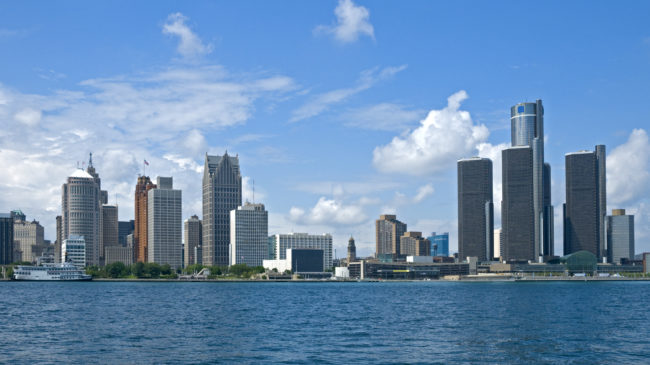Michigan voters spoke decisively in November 2018 by approving an initiative to legalize marijuana for adult use within the state. While the state worked expeditiously to get the new program online last year, the city of Detroit is dragging its feet. In late January, the Detroit City Council voted to prolong the city’s moratorium on adult-use marijuana businesses.
“The City Council voted unanimously Tuesday to extend its temporary ban on recreational marijuana sales until spring as it works on a law to govern how they operate and ensure residents can participate,” the Detroit News reported.
“It’s clear that Detroit’s medical marijuana industry is overwhelmingly owned and operated by individuals who don’t live in the city and take their dollars back to their communities,” City Councilman James Tate, who sponsored the moratorium, claimed.
He added, “We’re not anti-marijuana. But we’re pro Detroit.”
These big picture arguments for protectionism aren’t particularly novel to the marijuana industry, of course. People have debated the merits of free trade versus mercantilist protectionism for centuries. Economist David Ricardo demonstrated the superiority of free trade more than 200 years ago and that view continues to be upheld by economists from across the political spectrum, reaching from Milton Friedman to Paul Krugman.
The basic free-market argument is that foreign investment into a city like Detroit drives economic growth and produces opportunities for people that wouldn’t otherwise exist. That’s why most localities seek to attract as much outside investment as possible, even if some of the entrepreneurial profits are ultimately distributed to foreign owners. Irrational fear of these owner distributions, however, is what fuels protectionist concerns like those espoused by the Detroit City Council, which seems to be suggesting it would rather forego generating employment opportunities for locals altogether than allowing outside investment to flow to Detroit.
Unfortunately, that’s like cutting off your nose to spite your face. Before the City Council unanimously approved the renewed moratorium, attorney Matthew Abel noted that black-market sales are leading to violence because residents have no place to legally purchase marijuana in the state’s largest urban center. “It’s supply and demand — there’s a higher demand for black market marijuana because it’s cheaper,” Detroit Police Chief James Craig said.
With possession of marijuana now legal in Michigan, a moratorium on legal shops empowers the black market and allows it to thrive. Los Angeles, and much of California, has already seen this scenario play out in negative ways. Los Angeles has repeatedly delayed the licensing process for its new marijuana businesses. Despite state voters legalizing marijuana, The Los Angeles Times reports:
“Less than 20 percent of cities in California — 89 of 482 — allow retail shops to sell cannabis for recreational use…A Times audit of Weedmaps this year found at least 220 unlicensed dispensaries in Los Angeles. By comparison, the city has issued only 187 temporary licenses for legal storefronts.”
In fact, due to the state’s complex regulations and high taxes, a recent survey found nearly 3,000 illegal marijuana dispensaries operating in California. Many of these are retail storefronts that consumers may not realize are illegal, but which don’t follow safety guidelines or pay taxes. Detroit should think twice before following Los Angeles down this path.
Detroit should be working quickly create an orderly, legal market. Councilman Tate, however, explained he wants to hold up the licensing process until he’s satisfied with the social equity components of a city licensing scheme, which would give preference to applicants from communities disproportionately affected by the drug war. But Michigan’s Marijuana Regulatory Agency has already created a statewide social equity program amid its comprehensive regulatory framework and there is little need for Detroit to duplicate the state’s work in this regard.
Michigan’s marijuana program is very different from California’s, where social equity programs are primarily designed at the city level. Further, California is easily the most dysfunctional marijuana market in the country, for a variety of reasons. Michigan has already designed some of the best marijuana rules in the country and should not look to import California’s problems.
The Detroit City Council should lean heavily on the already extensive regulation developed by state authorities and seek to pass a simple regulatory framework to license adult-use marijuana before the black market further takes hold or consumers in the city who do want to buy legal products are driven out into neighboring suburbs.
California is not the marijuana market states should seek to emulate. Rather, by utilizing the framework that is already in place in the state, Michigan and its local governments have the opportunity to establish one of the nation’s best functioning markets for legal marijuana.

